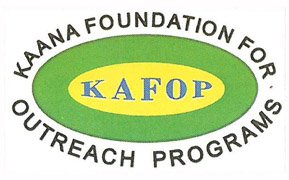
Kaana Foundation for Outreach Programmes (KAFOP) seeks to evaluate programmes to build evidence on how livelihoods and economic strengthening projects affect the care and protection of children, and link these lessons back to the field to improve programming. KAFOP conducted an evaluation study aimed at identifying the relationships between household livelihoods and child protection outcomes (child labour, exposure to violence, gender based violence, being barred from schooling, etc.) and child well-being (nutrition, clothing, shelter, schooling, health, etc.) in areas of intervention in the Rwenzori region.
Livelihood strategies were measured by recent changes in productive household activity and investment strategy. Livelihood status was measured in terms of income and assets. Preliminary analysis suggested that both household income and adoption of certain livelihood strategies predict outcomes in child protection and child wellbeing. Households in the project areas receiving economic strengthening and child protection services from KAFOP and other implementing partners were more likely to see improved outcomes in child protection and well-being.
Looking at basic research on gender, agency, intra-household allocation, and asset theory, KAFOP posits a model of change for economic strengthening programs that achieve improved outcomes for children in crisis situations; Economic strengthening programs targeting adults result in better outcomes for children when the female caregiver has greater agency (capacities to make important decisions that affect well-being and strategic interests) both in the home (resulting in more child-centred resource allocation) and in the community (resulting in greater social capital and increased ability to overcome structural barriers such as restrictive norms and policies, geographic isolation, etc.) In ES, programs engaging children as direct participants, it is their intra- and extra-household agency that matters.
KAFOP continues to foster economic strengthening services among 5,000 participants including/for people living with HIV as an essential component of a comprehensive approach to HIV treatment and care because they can help individuals overcome financial barriers that may otherwise impede their ability to access and adhere to treatment, as well as improve their overall quality of life. KAFOP focuses on financial literacy training, microfinance support, vocational training, training in Income Generating enterprises and other initiatives that help people living with HIV develop the skills and resources they need to achieve economic stability and build sustainable livelihoods.
KAFOP is continuing to raise awareness and implement evidence based approaches that protect children’s rights and health with support from Raising Voices since 2014 to 2022. Comprehensive approaches including the Good School’s Toolkit in 80 primary schools, 640 teachers, 640 School Management Committee members, 140,000 children, the mentioned school stakeholders have actively participated in prevention of all forms of violence and promotion of children’s rights, promotion of voices, life skills, urgency through creating conducive physical and psychological environment, practising alternatives to corporal punishments and improving teacher-child relationships that enable children to reach their full potential and attain better learning outcomes that help them develop as a whole.
Studies show that perpetrators of VAC are not only in schools but also in families/ homes and communities. To prevent VAC as one of our priority area under child protection thematic area, a holistic approach has been used to reach out to the communities, families and homes in addition to the Good school’s methodology targeting schools. With support from Children’s Right and Violence Prevention Fund 2016 to date, Raising Voices and Girl’s Not Brides Uganda 2020, more evidence based interventions have been carried out to engage families/ homes and communities. These include; weekly parenting for Respectability sessions among 1050 caregivers, weekly Life Skills sessions at 09 safe spaces for 400 adolescents out of school (13-24 years), 250,000 community members reached through Local activism e.g. community theatre, Focus Group Discussions, Community dialogues, Media campaigns, advocacy campaigns to end child marriages, commemorating international and national Days for children and women e.g. Day of the African Child, International Day of the Girl Child (IDGC), women’s day and 16 Days of activism against Gender Based Violence. Through the comprehensive interventions reduced harsh parenting since parents have adopted the use of positive methods of disciplining children, more equal gender relationships have been promoted by exploring how parents can raise both boys and girl children as equal , with similar values, aspiration and attitudes towards life, improving spousal relationship and reducing parental conflict especially the use of violence and encouraging greater parental involvement /engagement in their children’s lives, especially education and health, young adolescents have gained life skills overtime to overcome that can enable them to protect them from all forms of VAC and GBV and become resilient. Over 100 champions in ending child marriage including religious leaders, cultural leaders , teachers, youth representatives, VHT’s, 120 local leaders ( local council I, Parish chiefs, sub-County chiefs ),50 District leaders engaged in planning and review meeting and trained as budget advocacy committees.
Component of response to VAC and GBV is very crucial in preventing VAC and GBV, this has been incorporated into child protection interventions at family, school and community level to respond to incidents that occur and need urgent response. KAFOP is an established VAC prevention centre that provides psychosocial support to survivors of VAC, we have Urgent Action Funds allocated to emergency cases of VAC and GBV that may require medical examination, transport facilitation to legal centres and emergency food. As a VACPC we continue supplementing on government work and other like-minded partners to prevent VAC. By this, there is a strong network of child protection partners and referral directory that has been built to do child protection work which even contributes to better and comprehensive child protection package to survivors of VAC and GBV.

